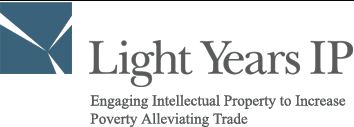Coffee Producers and Distributors Unite to Build Ethiopia's Brand Equity; Bridges Historic Divide
Published 02-14-07
Submitted by Light Years IP
ADDIS ABEBA- February 14, 2007- Many in Ethiopia’s coffee sector were celebrating today as they concluded an historic first meeting of Ethiopian fine coffee stakeholders with US and Canadian coffee importers and distributors of specialty coffees committed to work with them to build Ethiopia’s brand equity, and to raise the value and return to farmers for their finest coffees.
The Ethiopian Intellectual Property Office, spearheading the Ethiopian Trademarking and Licensing Initiative, convened the session between Ethiopian stakeholders - cooperatives, exporters and government bodies with responsibility for coffee- and US and Canadian specialty coffee businesses who have acknowledged Ethiopia’s right to Trademark three of Ethiopia’s most appreciated coffees, Sidamo, Harar and Yirgacheffe.
The group came together today to lay the groundwork for a totally new type of commercial North-South collaboration "“ a Network of Licensed Distributors working directly with the coffee stakeholders in Ethiopia.
"The specialty coffee market is growing fast year on year and shows no signs of slowing. Partnerships and closer relationships with fine coffee producers are going to become the norm. Ethiopia has taken an important lead and provided an innovative and formal framework in which to do this, where producers and coffee distributors have a direct stake and common interest in the outcomes of marketing and promotion of their coffee brands. We will be able to work to our long-term mutual benefit." Said Getachew Mengistie Director General of the EIPO.
"We are grateful to all the companies that have come forward and wish to start dialogue with us and be part of our new network of licensed distributors. The widening political support for this project is also very significant," he added.
Despite the high prices paid by consumers for specialty coffees at retail, most producers receive so little that they barely cover costs and find it very difficult to invest in their coffee farms. In Ethiopia the share of the retail price is so low that farmers struggle economically, and are abandoning some of the finest coffees to grow narcotic plants, which pay more. Producers are often unaware of the retail market value and the growing number of foreign drinkers who have a passion for their coffees.
Haile Gebre Hiwot, President of the Ethiopian Coffee Exporters Association addressed the meeting: "With ownership of these coffee brands we have the right to use them in world markets, especially in the developed world. It is logical for us in this business to work together to stabilise the price so that we can avoid the harmful and wide fluctuations and can achieve good constant coffee quality and assured livelihoods for all."
Businesses who are joining Ethiopia in its efforts to build on the centuries old reputation of these coffees are quick to acknowledge it is a win-win.
"From the beginning of our company more than 25 years ago, we have always focussed on high quality coffee like Ethiopia's. Over the years we have recognised that high quality coffee does not just happen by accident, but because people care about it, and make a constant investment. That is why this initiative to create direct relationships, jointly promote the coffees and help the farmers and their families resonates with our company. We are committed to support Ethiopia to expand this network of licensed distributors." stated Rick Peyser of Green Mountain Coffee Roasters of the USA present at the meeting.
During the discussions, Tadesse Meskele, Head of the Oromia Farmers Union and protagonist in the recent documentary, Black Gold, stressed: "Now that the trademarking work is becoming fruitful, many in the specialty coffee market are happy with us and accept that we want to increase our negotiating power and ensure greater returns to small farmers. We need this to retain the commitment needed by the small farmers of Ethiopia to work on the production of the highest quality coffees." Mr Meskele concluded with thanks and acknowledgement of the work of the Ethiopian Intellectual Property Office in laying the ground work for the initiative over the last three years.
This week Ethiopia will be presenting its concept to more than 60 international coffee companies who are all gathered in Addis for the 4th annual East African Fine Coffee Association conference. Billed as the ‘pilgrimage to the birthplace of coffee’, the event this year has attracted record numbers, a sign of the buoyancy of this market and the growing desire for good partnership and information exchange.
With Trademarks for Harar, Yirgacheffe and Sidamo registered in more than 28 countries, the EIPO has applications proceeding in Brazil, China and India and the Ethiopia Trademark and Licensing Initiative is receiving growing support and expressions of goodwill and encouragement.
For further information contact:
Ethiopian Intellectual Property Office (EIPO)
Director General: Getachew Mengistie
T: +251 (11) 553 4969
gmengistie@yahoo.com
Ethiopian Embassy, Washington DC
Solomon Kebede
T: +1 (202) 364-6386
solomongelila@yahoo.com
Ethiopian Embassy, London
Gail Warden
T: +44 (7717) 603 163
gail@ethioembassy.org.uk

Light Years IP
Light Years IP
Light Years IP (LYIP) is a non-profit organization dedicated to alleviating poverty by assisting developing country producers gain ownership of their Intellectual Property (IP) and to use the IP to increase their export income and improve the security of that income. LYIP is pioneering a Poverty Alleviating IP Solutions (PAIPS) approach to help developing world producers identify and own their IP. We believe IP offers a business strategy that can help developing countries increase income, improve the security of their income, and alleviate poverty. We assist producers, exporters, and governments in the developing world to analyze their export potential with respect to identifying the value of intangibles and then using IP tools (i.e. patents, trademarks, licenses) to secure more sustained and higher export income. The ownership of IP is secured in market countries through the existing IP legal frameworks of the developed world.
More from Light Years IP

